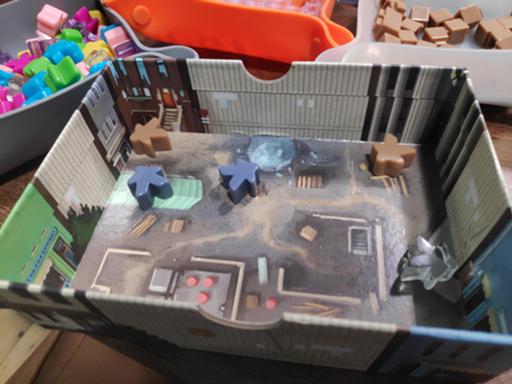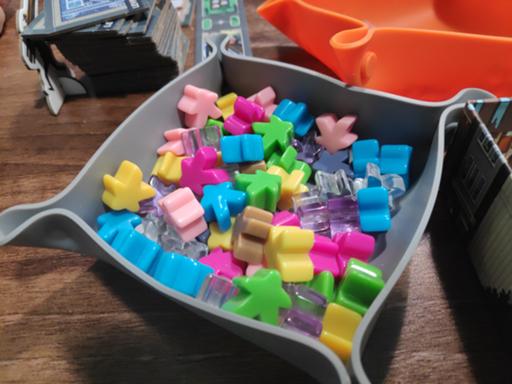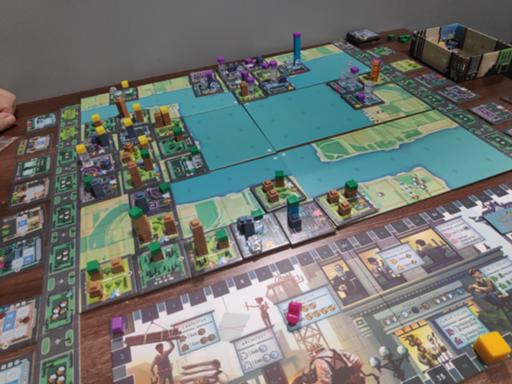Back to the boardgame café.
Tonight's sole game was Rolling
Heights,
a city-building game with a gimmick: each turn, you toss your stock of
meeples, and treat them differently depending on how they fall.

In other words, they're dice – though without obvious probabilities.
My impression was that "lying down" happened about half the time, then
of the remainder perhaps 3/5 on side and 2/5 upright – but upright
might happen less often when you're throwing a lot of meeples. Also,
the meeples are only distinguished by colour – so no good for anyone
with colour vision deficits. Ditto the tiles, which require specific
coloured cubes to be added to them. My proposed fix would be to add
stickers or paint with distinctive symbols, though of course that
would increase the production cost.

That wasn't a problem for us since we don't have colour vision
oddities—though we're all getting older, and tiny text on the tiles
was not our friend when a tile had to be read from half-way across the
table. What did slow things down significantly was a problem I first
met in Alien
Frontiers
from 2014, that most later games have managed not to repeat: you roll
the dice at the start of your turn, and only then can you start to
think about how to use them, which slows things down massively if you
have a slow player. In Alien Frontiers that's unavoidable, because
the things you can do with your dice depend largely on which spots the
other players have left open in the shared dice placement areas. But
here it would be very easy to house-rule away: once you're confident
you know how the game works, you roll your meeples—including standard
rerolls—at the end of your turn, at the same time that the next
player is starting their turn. Then you have all the other players'
turns during which to get that rolling done, and to think about what
you'll do when it's your turn again. There are interactions between
players – you're all building on a shared map and can score off each
others' completed tiles – but at least on the basis of our first-play
experience you're unlikely to have to throw away your entire turn plan
based on what someone else has done.
So while some of the designer's intention to build a better
Suburbia is
obvious—there's still a tile market with gradually decreasing costs,
and many lots have value based on their neighbouring lots, though it's
only scored at the time they're built—alas Rolling Heights also
suffers from Suburbia's tendency to drag if any player is anything
but prompt in their turn-taking.

Comments on this post are now closed. If you have particular grounds for adding a late comment, comment on a more recent post quoting the URL of this one.